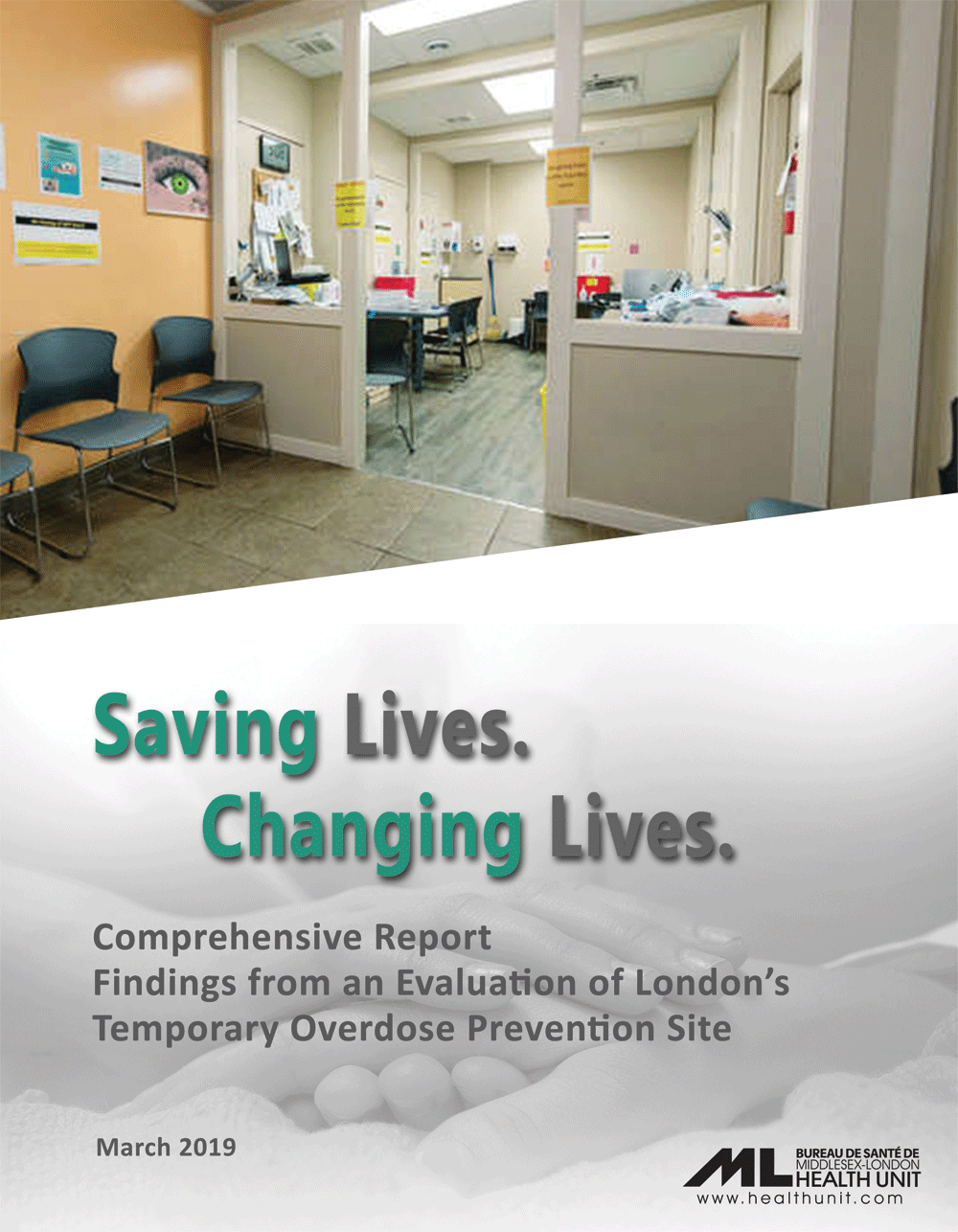Outreach Team ("Street Nursing")
The Middlesex-London Health Unit's Outreach Team participates in locating, engaging, educating, and ultimately linking people to care, treatment and basic needs programs (i.e. housing, London InterCommunity Health Centre, Infectious Diseases Care Program, etc.). The end goal of the team is to help decrease the spread of disease and support clients through their continuum of care. The team creates an environment where clients feel supported enough to reach their treatment goals.
Needle Syringe Program
The Needle Syringe Program is a community collaboration that provides a variety of services to clients. These services include distribution of new injection and safer inhalation equipment, disposal of used equipment, naloxone and training to help prevent overdoses, education and information about safe injection or inhalation practices and referrals to support services and organizations in the community.
Middlesex-London Community Drug and Alcohol Strategy
The Middlesex-London Community Drug and Alcohol Strategy (CDAS) is a collaboratively developed, long-term strategy to prevent and reduce the harms of substance use in London and Middlesex County. The Strategy consists of 23 recommendations and 98 associated actions, with 59 of these actions prioritized for the first three years. The full strategy report, Middlesex-London Community Drug and Alcohol Strategy – A Foundation for Action, was launched in 2018. The full report and information related to the Strategy, can be found on the CDAS website. The Middlesex-London Community Drug and Alcohol Strategy Status Report (2019/2020) (PDF) was released in May 2020 providing an update on community actions and successes achieved to date.
Safer Consumption Practices
With the increases in HIV, Hepatitis C and iGAS rates, messages were developed to educate and promote harm reduction practices for people who inject drugs (PWIDs), including the use of clean injection equipment at every use. Messaging was also created to educate PWIDs about some of the warning signs of conditions that require immediate medical assistance that can arise from injection drug use.
Needle Recovery
Each year in London, more than 3 million clean needles are distributed to people who inject drugs; of these, about 60% are recovered.
- Free and confidential needle exchange services are available at Regional HIV/AIDS Connection (RHAC), the Middlesex-London Health Unit and My Sister’s Place.
- Well-marked stationary needle disposal bins in several public areas collect discarded needles and syringes; they also assist with overall recovery of used injection drug equipment. See the list of stationary needle disposal bin locations and learn more about the safe handling and disposal of needles.
If needles are found on public property:
If needles are found on public property, please call 519-661-2489 ext. 4965. This phone line is answered 24 hours per day, 7 days per week.
Public Drug Use
People tend to use drugs in public areas, because they don’t otherwise have a safe location to do so. Supervised Consumption Facilities provide people with a safe and clean place to use drugs. This can reduce the risk of overdose and the spread of diseases, such as hepatitis C and HIV, and provides an opportunity to connect people who use drugs with treatment and support services in our community. In addition, in places where Supervised Consumption Facilities have been established, there has been a marked decrease in the number of used and discarded needles in the places they used to be found.
